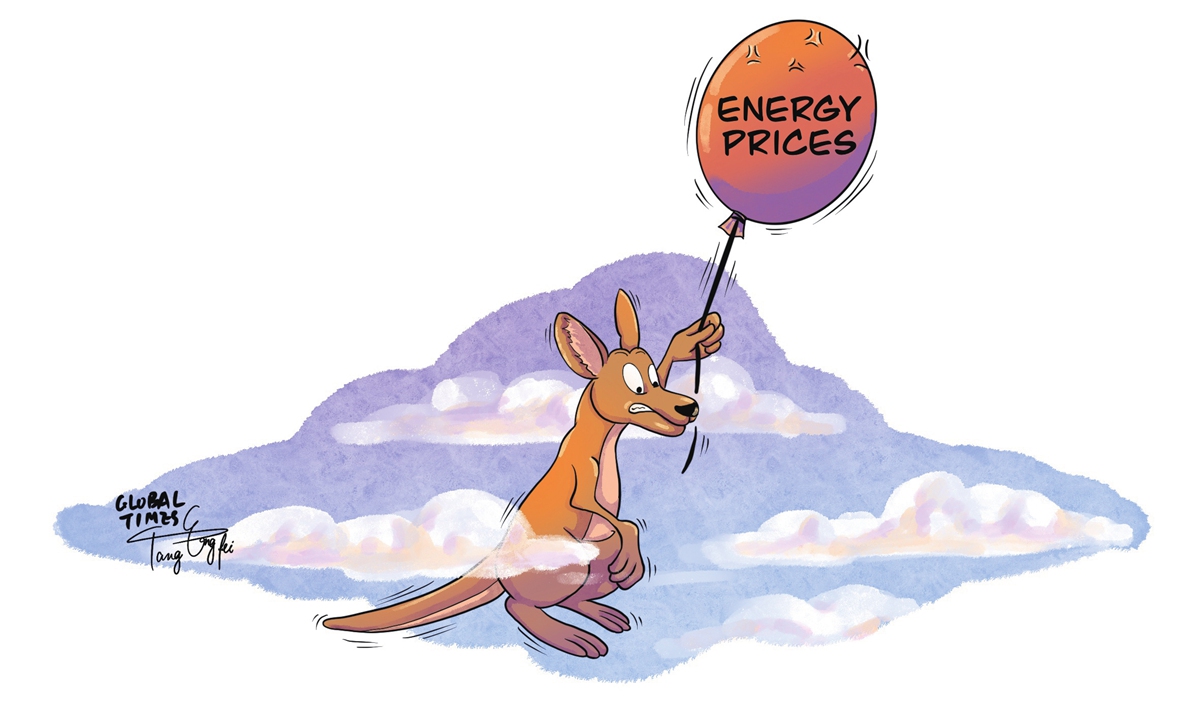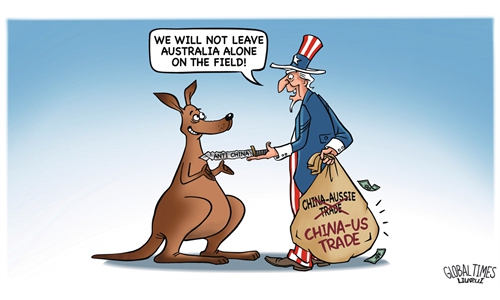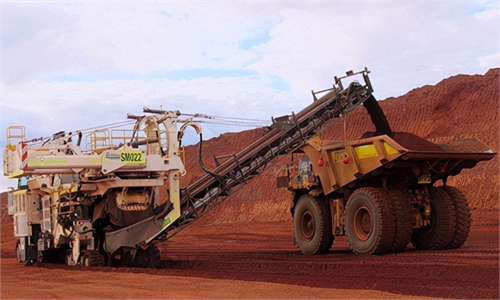COMMENTS / EXPERT ASSESSMENT
Australian leaders are cheering record energy revenue, but that won’t last

Illustration:Tang Tengfei/GT
Australia's resources and energy exports are expected to reach a new high of AU$379 billion ($272 billion) during the current fiscal year, Australia's Minister for Resources and Water Keith Pitt said on Monday. In the context of deteriorating China-Australia relations, this estimate has prompted some Western media outlets to claim China's "economic coercion" has backfired.
Australian Treasurer Josh Frydenberg on Friday accused China of "economic coercion" against Australia and argued that China will still need Australian resource exports, according to Reuters.
Such self-comforting remarks show that Australian officials are determined to continue to ignore the complaints and opposition from many domestic businesses that have been suffering, and continue to implement radical anti-China policies. With such publicity stunts, they apparently view resource and energy exports as tools to support their extreme anti-China policies.
It must be pointed out that Canberra's accusation of "economic coercion" is baseless. China's anti-dumping tariffs on Australian wine and barley are legitimate measures under relevant WTO rules. China and Australia are both members of the Regional Comprehensive Economic Partnership (RCEP). It is impossible for China to launch unreasonable actions against imports from Australia.
On the contrary, it is the Australian government that has been politicizing economic and trade issues, violating economic and free trade rules and implementing discriminatory measures against Chinese products and enterprises. Australia was the first country in the world that explicitly imposed a ban on Chinese tech giant Huawei. It has also restricted Chinese investments and torn up agreements under the Belt and Road Initiative.
The recent surge in Australia's resources and energy exports revenue is a combination of multiple factors, including global energy supply shortages and depreciation in Australia's currency. Temporary factors such as energy supply issues played a major role. Some analysts estimated that the shortage of energy supply will ease next year and prices will fall back, meaning the increase in Australia's energy export revenue could evaporate quickly.
Despite escalating political tension, China and Australia still enjoy complementary and mutually beneficial economic and trade ties. Even as global trade has been battered by the COVID-19, total trade volume between China and Australia stood at $168.32 billion, down only 0.7 percent. Over the past decade, China has been Australia's largest trading partner, accounting for one-third of its total exports.
However, Australia's constant and unreasonable provocation against China has already impacted certain aspects of the bilateral trade, and the Australian business community has already felt the pain.
According to a recent report by the Australia-China Relations Institute (ACRI) of the University of Technology Sydney, while Canberra is serving as Washington's pawn to counter China, US competitors are vacuuming up Australia's lost sales in the Chinese market. Another report from ACRI earlier this month showed that Australian companies are "still keen to work with China," though political tensions disrupted the export of around a dozen Australian goods in 2020.
Further damages could be done, if the Australian government continues to take the wrong approach toward China. Increasing signs suggest that Australian Prime Minister Scott Morrison wants to keep that approach. With an election scheduled for the first half of 2022, the Morrison administration has intensified its anti-China campaign.
That will not bode well for China-Australia relations and the Australian economy. Australian officials can point to record revenues from resources and energy exports, but prices fluctuate and will likely fall. In the end, Australia will suffer the serious consequences of its increasingly unhinged anti-China approach.
The author is a reporter with the Global Times. bizopinion@globaltimes.com.cn



